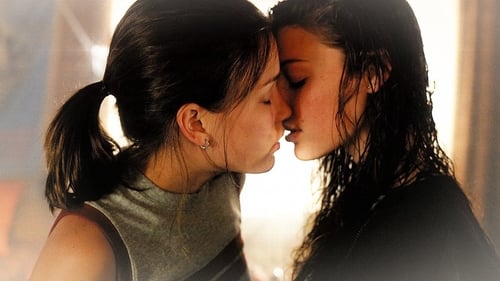
Cinematography
In this very personal and poetic film, veteran documentarian Serge Giguère pores through 100 letters written by his late mother to him and his 15 siblings. In them, she details the trials and tribulations of raising 16 children in rural Quebec, while helping to run a family carpentry business. Through inventive and playful techniques, Giguère brings the stories alive, applying creative approaches to family photographs, archival footage and staged reenactments. He mixes his mother's stories with his own memories and those of his siblings, some of whom hear for the first time what their mother had to say about them. Through these intertwining stories, the film presents not only a testament of a mother's complicated love for her many children, but also offers an intimate look at 1950s working class Quebec. - Aisha Jamal (Hot Docs Film Festival)

Additional Camera
A quest across three continents driven by a simple yet original idea: to shine a spotlight on the Davids of this world.

Cinematography
John Walker grew up an Anglophone in Montreal in the years surrounding Quebec's Quiet Revolution. He witnessed first-hand the upheaval that transformed the political and cultural landscape. In those years, more than 500,000 English-speaking Quebecers left the province, many of them—including Walker—finding their way to Toronto. After decades as a cinematographer and documentary filmmaker, Walker decides to turn his lens on his own story and dig into the heart of the social revolution that shaped his identity. His immediate and extended family express their conflicted feelings about their place in modern Quebec. Others, from a police officer who diffused FLQ bombs to director Denys Arcand, contemplate the issues that drive Quebec's desire for sovereignty. A province's past is informed by personal reflection and Walker's perspective that "my grandmothers taught me that history is a path to understanding and myths and half-truths must be challenged." (Summary by Alexander Rogalski)

Second Assistant Camera
Mary "Mouse" Bedford é enviada ao colégio interno "Perkins Girls" pelo seu pai e sua madrasta quando sua mãe morre. É uma menina tímida, mas rapidamente é aceita pelas suas duas colegas de quarto, Paulie e Tory, conhecidas como as garotas perdidas do colégio. As três formam um laço de amizade muito forte e tornam-se inseparáveis. Apesar da amizade entre elas, Mouse fica confusa acerca da proximidade do relacionamento entre Paulie e Tory. Rapidamente descobre-se que a sua partilha vai para além da simples amizade. Sem justificativa, Tory cede à pressão de sua família e distancia-se de Paulie, que recusa-se a aceitar este afastamento. Mouse divide-se entre as duas amigas, Paulie se vê sem saida e faz de tudo para recuperar o amor de Tory, que tenta provar a heterosexualidade namorando garotos. Paulie se vê desesperada diante da situação e não se conforma em perder o amor de Tory, lutando cada vez mais para recuperar o amor dela.

Director
An intimate portrait of the Canada Pavilion at the Venice Biennale, an architectural gem designed by Milan’s famous Studio BBPR and recently restored, along with its gardens, by the National Gallery of Canada.



